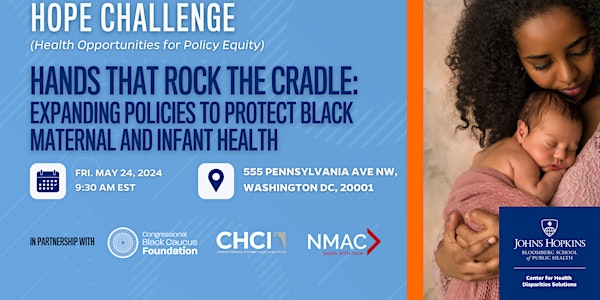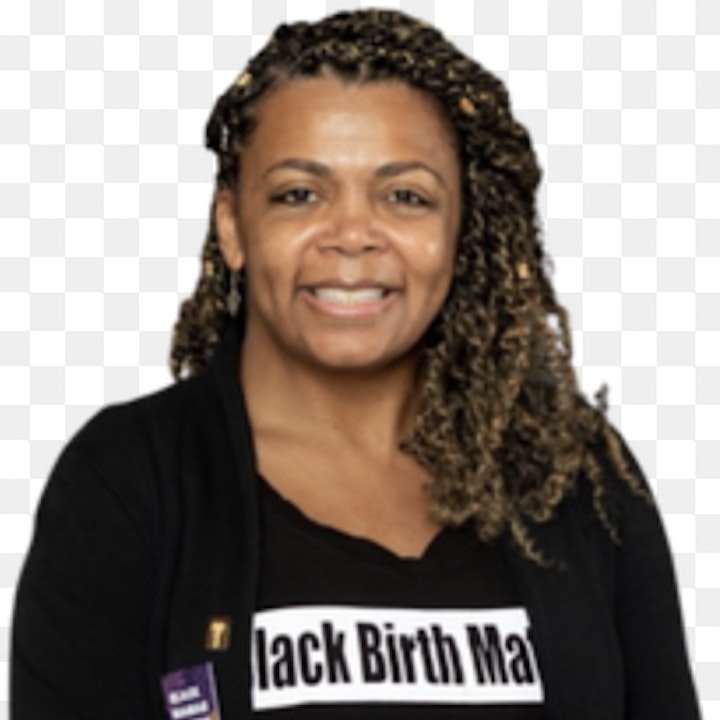Join us for a pivotal half-day summit, "Hands That Rock the Cradle: Expanding Policies to Protect Black Maternal and Infant Health," hosted by the esteemed Johns Hopkins Center for Health Disparities Solutions, Congressional Black Caucus, Congressional Hispanic Caucus Initiative, and NMAC.
The mission of the HOPE (Health Opportunities for Policy Equity) Challenge initiative is to engage legislators, administration officials, advocates, and other influential stakeholders in the effort to advance equity-centered federal policy solutions to close preventable racial and ethnic health disparities.
The summit aims to shine a spotlight on the pressing health disparities facing Black mothers and infants, discussing the why and how behind the stark statistics that Black women and infants are significantly more likely to die during childbirth than their non-Hispanic white counterparts.
Agenda Highlights:
- Panel I (9:30 a.m.): Featuring renowned experts including Yolanda Lawson, MD, President of the National Medical Association, Dr. Kanika Harris, PhD, MPH, Director of Black Maternal and Child Health at Black Women’s Health Imperative, and others, this panel will delve into the causes of maternal and infant health disparities and explore policy solutions.
- Fireside Chat (10:45 a.m.): An interactive session with leaders in health, philanthropy, and government, including Linda Wilson, Executive Director of Fund II Foundation and Lauren Parker, PhD, MPH, Senior Scientist at Johns Hopkins University Bloomberg School of Public Health and others discussing community-based, philanthropic, and policy solutions to the maternal and infant mortality crisis.
- Awards Luncheon (Noon): Celebrating HOPE Challenge honoree with a keynote from Congresswoman Lauren Underwood.
Who Should Attend: Legislators, health professionals, policy advocates, community leaders, and anyone committed to improving maternal and infant health outcomes.
Don't miss this opportunity to be part of the conversation and solution to one of the most critical public health challenges of our time. Together, we can protect and uplift the health of Black mothers and infants through impactful policy change
For more information click here to visit the HOPE Challenge Website.




